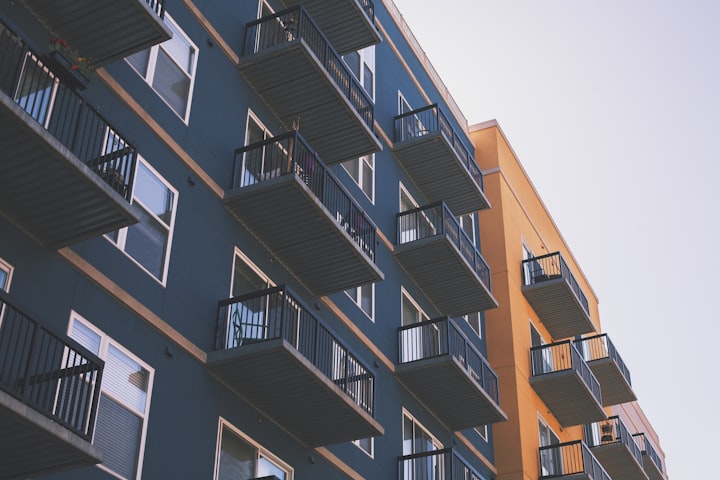9 Things to Consider Before Buying a Your Rental Property
Before you Invest in Real Estate, Read This

Most self-made millionaires are made through real estate, and you think it is about time you got a part of that action. Here are 10 things to consider before you put in that offer on your first rental property.
1. Do you know your goal?
a. Are you in it for cash flow? Appreciation? A quick flip? If you are hoping to make big gains with appreciation, you will want to look in an area that you expect to have an increase in demand and/or growth. Odds are you will get better appreciation in areas where jobs are being created, not where employers are closing shop and moving out. If cash flow is more your style, you will want to make sure you do not overpay initially, otherwise the mortgage payments (if financed) could be eating into your bottom line and preventing your monthly pay out. Do you want to make several thousand this year? Maybe flipping a house is the technique for you.
2. You cannot change location.
a. You can replace a roof, remodel the kitchen, and landscape the yard – but the water treatment plant is not going anywhere. Are you hoping to attract families with children? Check the local schools and be sure lack of elementary schools in the area will not be the reason you miss out on a good tenant.
3. You CAN paint the walls.
a. When it comes to repairs, do not let the cosmetic stuff scare you. Paint is easy. Foundations, on the other hand, might take a specialist. You can change light fixtures in a day, but rewiring an entire home will likely take permits, inspections and a professional which adds up in both time and money. Be sure you know what you are comfortable with when it comes initial maintenance and repairs.
4. Will you self-manage or hire it out?
a. Managing your own properties can save you money in management fees, but it also means you will be fielding the calls when the toilet stops flushing. Are you willing to get handle coordinating regular and emergency maintenance calls? If you want to be a little more passive in your approach to the rental property – a property manager might be your best bet. You will have to pay them a percentage of the rent, but a good manager will enable you to “set it and forget it” when it comes to the day-to-day operations. If you are just starting out and your profit margin is too slim to hire a manager, self-managing can provide the best “trial by fire” education you have ever had in the rental property world. Some tenants will be great and self-managing will be almost as easy as having a manager – but someday we all end up with that tenant. The one that calls every week to complain about the noise from the road, or the one that wants the fridge serviced because it does not keep their food cold when they leave the door open, or the one that. . . well you get the idea. Decide if the extra work is worth the extra cash or if the manager fee is worth the passivity.
5. Remember to calculate operating expenses.
a. A rental that puts money in your pocket every month sounds amazing – but the part that fewer people brag about is the money is costs to put money in your pocket. Any home will require maintenance, and as the owner that makes you responsible for said maintenance unless you write it into the rental contract to make the tenant responsible. Be wary of putting the tenant in charge though – at the end of the day you are legally responsible for that home. If there is a house fire due to the chimney or furnace not being serviced in years, that responsibility will fall on the owner, not the tenant. You will want to remember to budget for annual maintenance (like cleaning the chimney, the gutters, replacing air filters) as well as life cycle maintenance (like replacing the roof, the floors, the AC Unit, etc). When it comes to determining how much money goes into your pocket every month, you need to include those expenses and spread the large costs over the months to help your budget and your overall plan.
6. Unless it is your primary residence, you will need 20% down.
a. There are exceptions. Experienced investors can qualify for loans at 75% of value of the home, regardless of the purchase price. First time buyers – cannot. You can look for a small multifamily (like a duplex or fourplex) and still purchase the home with a primary residence type mortgage (like a VA or FHA loan). This is an excellent strategy as it allows you to put a much smaller down payment into the deal, gives you a place to live (which you need and have to pay for anyway) while the tenant pays all or some of the mortgage for you. The BiggerPockets Podcast calls this strategy “house hacking”.
7. Not every deal is a good deal.
a. Sometimes, the numbers just do not work. That super cute house in the neighborhood you grew up in may hold a special place in your heart, but if the selling price is too high and the rental demand is too low, it might not make financial sense to pursue. If you need $800/month to cover your costs but the market rent is $600/month – you may never find a tenant. Be sure to run the numbers to avoid a potentially costly blunder (remember #6, that NOI is important!). Do not put an offer on a bad deal because of an emotional appeal to a certain property. Do you and your wallet a favor and make sure the numbers work first.
8. Be honest with yourself.
a. Is owning a rental property something you genuinely want or is it just trendy right now? It can be a relatively passive form of income if nothing goes wrong, but rental properties can also be a lot of work. Just because you have a lot of friends jumping into this does not mean you should. I am not here to talk you out of this purchase, but this is the time for your gut check. Are you willing to put in the work or pay for someone else to put in the work when something goes wrong? Think clogged toilets, leaky showers, or siding replacements.
9. Be patient.
a. The first home you buy probably will not be a home run with a 100% return. That is okay. The first rental property might barely make money – but you will learn so much about the process of buying a home, finding good management, setting up a lease, home maintenance and even the local area around the home. If you find you enjoy the process and see the potential benefits, you can pursue your next purchase and find an even better deal with a better return.
You have a few things to think about, but if/when you decide to press on with this new adventure you should be better prepared for having thought about these things in advance.
If you do buy a rental – let me know. I love learning from other experiences and sharing my own. Plus I love talking about real estate, so drop a comment or find me on Instagram @kathryn.n.b and shoot me a message.
Cheers.
About the Creator
Kathryn Brown
Find more at www.heykanb.com :) thanks in advance for the visit!






Comments
There are no comments for this story
Be the first to respond and start the conversation.